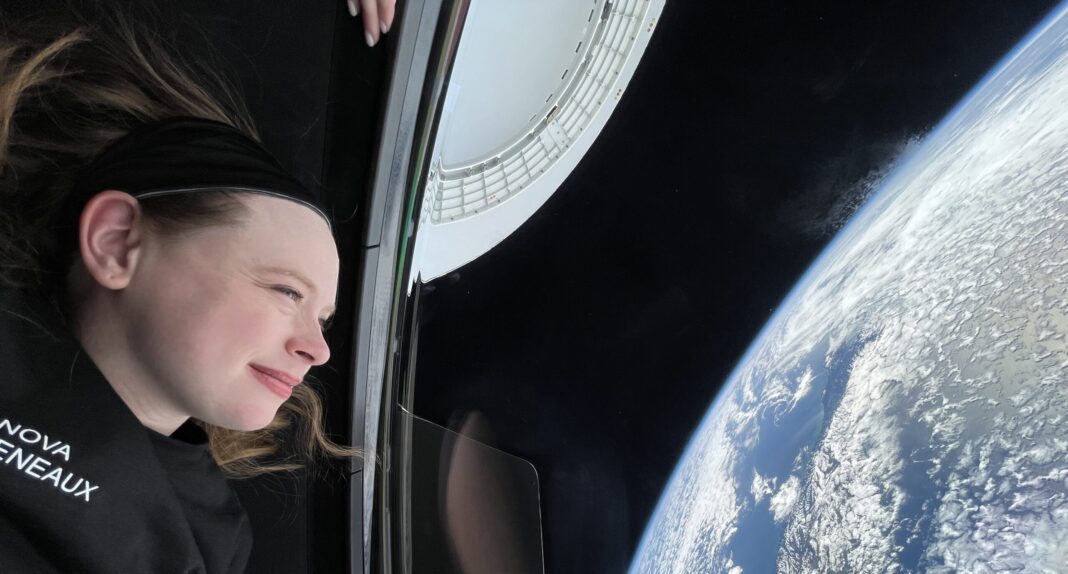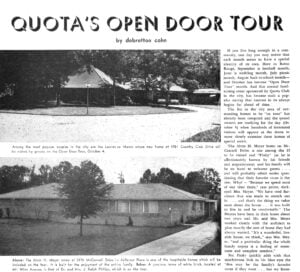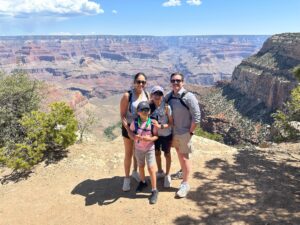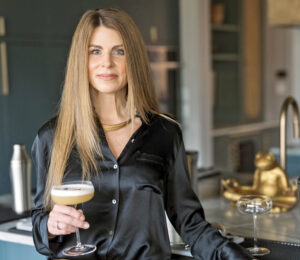Coming down to Earth with civilian astronaut Hayley Arceneaux and her debut memoir

In our November issue, we turned our eyes to the stars with St. Jude Children’s Hospital physician-assistant-turned-civilian-astronaut Hayley Arceneaux for a review of her debut memoir Wild Ride: A Memoir of I.V. Drips and Rocket Ships. Spanning key moments in her life from her cancer diagnosis at age 10, her travels and studies in pursuit of her career, and ultimately to her successful journey with the crew of the Inspiration4 space mission, the book can be read as a portrait of triumph over grief and fear, but also as a simple tale of ordinary people encountering extraordinary circumstances.
Arceneaux, for example, couldn’t have guessed that her next return to her hometown of St. Francisville would be at the helm of her own book tour. She sat down with us over Zoom a few days prior to this homecoming to share more details about the events that led to writing down her story.
“During my astronaut training, different agents reached out to me about writing a book, but what really convinced me to share my story was hearing from different people in real life and on social media who would say that my story inspired them, whether because they were going through a tough time or were attempting to accomplish something big in their lives,” says Arceneaux. “I finished this manuscript back in January, and the book came out in September, which is really fast for the publishing world. But I’m glad I wrote quickly, because I know that years from now I’ll be glad to have my fresh perspectives on things I otherwise might have forgotten.”
Not that Arceneaux will likely be forgetting things like her first sight of the earth through the window of the Dragon capsule that took her into orbit, making her the youngest American in space (not to mention the first cancer survivor, and the first person with a prosthesis). Nor will she likely forget her first experiences in zero gravity, the feeling of liftoff, or the gravity (no pun intended) of a situation that could potentially end in death for her and her crewmates. The money raised by the mission for St. Jude Children’s Hospital, along with Arceaneaux’s experience speaking to patients and families from space, will not soon be forgotten. But the book’s littlest details—the ones specific to Arceneaux’s emotional experiences—stand out as the crucial elements that make her journey to the stars such a moving recollection.
“During my cancer treatment, a lot was out of my control, and I had to spend my whole adult life trying to regain that sense of control,” says Arceneaux, who was still working full time during the first stages of her astronaut training, which included hours becoming acquainted with her crewmates and learning the physical challenges they would meet in space. “I had to learn to trust that the people leading us had our best interests in mind, and I tried to give myself grace as I tried to balance everything. Plus, I knew that so many kids with cancer would be impacted by this mission. They’re such an inspiration, and always gave me the motivation to help me through the tough times.”
The toughest part of her training, however, didn’t come from the “vomit comet” zero-gravity flights or academic studies in NASA’s Space Camp in Huntsville. Instead, that distinction goes to climbing Mt. Rainier in Washington, a feat Arceneaux says was especially nerve-wracking given the uncertainty of whether the prosthesis in her leg would be able to handle the challenge. In the end, the challenges not only demonstrated what she was physically and mentally capable of, but also lent valuable information to the science behind her prosthesis, showcasing Arceneaux’s already-held belief that no one needs to be able to run at high speeds or jump to incredible heights to achieve remarkable feats.
Still, Arceneaux is quick to give credit where credit is due—not only to the trainers and scientists who gave her the opportunity to touch the stars, but to her late father who helped her believe that she could.
“My cancer was something that I could overcome and push through. The pain, the surgeries—that was all temporary. My father’s loss was permanent,” she says. “There were many times during training when I felt my dad really close to me, especially during the launch, and I’m happy that the book can help speak to what a great person he was, and to help preserve his legacy forever.”
To read all about Arceneaux’s journey into space, check out her memoir here. And read our review of the book in this story from the November issue of inRegister.










